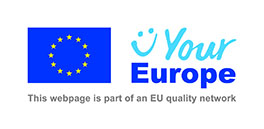The most common registration options are:
- Self-employed / Sole Trader)
- Partnership
- Limited Liability Company (Ltd)
- Cooperative
All business entities must register for VAT to comply with the local Value Added Tax legislation of 1998. Click on the relevant legal format below to be guided to the relevant procedure.
You can register for a PE Number through the e-id. Companies and Partnerships can register for a PE Number through the e-id, and also have access to the CFR03 https://cfr.gov.mt/en/eServices/Documents/CFR03.pdf
Business 1st can provide information on the formalities related to registering your business. One may contact Business 1st on:
Tel: 144 or +356 25423020
email: Click here
or visit: Business 1st Office
Sole Trader / Self Employed
SOLE TRADER / SELF-EMPLOYED
Legal Form of Business
Sole Traders need to register with Jobsplus as self-employed. These can start trading straight away as long as the required permits and registrations are carried out. One may check which activities require a licence/permit/authorisation in Malta in the section Licences and Permits.
| Liability | If the business fails, then the owner is fully responsible for all the business debts. |
| Management | The owner is solely responsible for controlling the business. The owner’s word is final. |
| Finance | Normally, the owner's personal money. |
| Profits | All profits go to the owner |
| Taxes | Self-employed status. Even if the owner does not draw on the profits they are still taxed. Losses can be offset against tax on other income. |
Registration of a business
MALTESE
The commencement of self-employment requires registration to be made via eform by following this link.
Maltese sole traders (self-employed) need not register with the Commissioner for Revenue as the tax registration number is the same as the ID Card number, thus this service is automated for Maltese Nationals
EU NATIONALS (CROSS BORDERS)
EU citizens already in possession of a Maltese Social Security number and an Income Tax number are required to fill in the Jobsplus Engagement form and the VAT new number registration form. These may be effected either by accessing the links provided or alternatively applicants can visit Business 1st office for assistance.
EU citizens who are yet to start Self-Employment must first apply for a Social Security number and fill in a Jobsplus Engagement form. Once the social security number has been issued, within 2-3 working days, the Income tax number is then generated and applicants may proceed with the VAT new number registration form. Alternatively, applicants can visit Business 1st for assistance.
What documents do I need to bring with me to register as a self-employed /sole trader through Business 1st?
- You will need to get your Social Security Number and Income Tax number (if known);
- A valid Identity Card or Passport
General Provisions
No citizen of the EU or his/her dependant can pursue activities as a self-employed, unless s/he:
- is registered as a self-employed person;
- operates from a registered address and satisfies all other requirements that are normally required for a self-employed Maltese national, including all matters relating to registration and taxation; and
- has the ability to support him/herself and such dependents accompanying him/her.
NON-EU NATIONALS
In respect of third country nationals, an employment licence is required and is only granted in exceptional cases. In order to qualify for self-employed status, a third country national must meet one or more of the criteria found in the following guidelines.
TCNs, married to, or in a civil partnership with an EU national, or have an EU family member are required to register for a TIN via the following Expatriates Registration form. In this case one needs to provide:
- Declaration of residency,
and in the case of married applicants, where spouse also resides in Malta;
- Spouse’s details
- Marriage certificate
- Copy of spouse’s ID card
TCNs who are eligible to register their business operation in Malta are required to register for a Tax Identification Number via the following Expatriates Registration form. In this case one needs to provide:
- Declaration of residency
in the case of married applicants, where spouse also resides in Malta;
- Spouse’s details
- Marriage certificate
- Copy of spouse’s ID card
Foreigners providing services in Malta can find more information here. They will need to file the Non-Resident Registration Form. This form can be requested and filed via email on taxpayerservice.cfr@gov.mt. Please contact Business 1st here for further guidance.
Partnership
PARTNERSHIP
Legal Form of business
| Liability | If the business fails, then the owners are fully responsible for all the business debts. |
|---|---|
| Management | The partners share responsibility for controlling the business. |
| Finance | Generally, the partners’ private funds provide the Company’s finances. |
| Profits | All profits are shared between the partners (as agreed within the 'Deed of Partnership'). |
| Taxes | Self-employed status. Even if the partners do not draw on the profits they are still taxed. Losses can be offset against tax on other income. |
REGISTERED PARTNERSHIPS
-
PARTNERSHIP EN NOM COLLECTIF:
-
PARTNERSHIP EN COMMANDITE:
Registration of a partnership
- When a partnership is formed, a deed of partnership (partnership agreement) is drawn either by the partners themselves or in front of a notary.
- In case of a registered partnership, the deed of partnership has to be submitted to the Malta Business Registry in order to register the Partnership. A Partnership Certificate is issued.
- A Partnership Registration form needs to be filled in for income tax purposes and sent to ralph.decelis@gov.mt. An income tax number on behalf of the Partnership will be issued.
- The Partnership also needs to be registered for VAT. A VAT Registration form together with a VAT Declaration form need to be filled in and signed by all partners.
- In case of a registered partnership, the the partners are considered as employed by the Partnership and hence need to fill in the Engagement Form - Employed. A PE number is required from the Commissioner for Revenue. Click here to apply for a PE number.
- In case of a non-registered partnership, partners have to be individually registered with Jobsplus as self-employed. For further information and application submission kindly refer to the online link. Note that in order to make use of the online application, one is required to log in on the Jobsplus portal first.
Alternatively, one can visit Business 1st for assistance, after the deed of partnership has been drawn and the income tax number has been obtained. The following documents are needed to register for a VAT number at Business 1st:
- A legal identification document (I.D. card / passport) of all the partners
- In case of one partner visiting Business 1st on behalf of the other partner/s a VAT Partnership Declaration, duly filled in and signed by all partners,
You will also be asked to supply the following information:
- An outline of your new business and what activities you plan to undertake
- The date when business activities started or will start
- The planned turnover of the business
Company
PRIVATE LIMITED LIABILITY COMPANIES (LTD)
Legal Form of Business
Companies cannot just start operating but need to follow a predefined process of registration and set-up (Business Registration). It should be noted that a Company is a legal entity in its own right.
| Liability | The shareholders' personal assets are protected if the business fails (Limited Liability). The shareholders can only lose what they have put into the business. |
|---|---|
| Management | The business is controlled by the Board of Directors. Each director is held personally responsible for its management and must act in the Company's best interests. |
| Finance | Generally, the shareholders’ private funds and/or bank facilities provide the Company’s finances. |
| Profits | Dividends are paid to the shareholders. |
| Taxes | The Company pays taxes on its profits. All employees and directors pay taxes on income earned through wages, salaries or other forms of remuneration. |
Registration of a Company
Registration process
In order to be registered, the company should submit the required documentation to the Malta Business Registry (MBR). Additional information can be viewed on the Authority's Guide to Registration of Companies.
Alternatively you can login directly with the MBR online. Users can login on the portal with their national E-ID or register for an account (in the case of Non-EU) and apply for a Qualified Digital Signature to submit documentation through the online portal. For further information on how to use the online Malta Business Registry and filing services kindly refer to these guidelines. It is strongly suggested that one uses a local practitioner for guidance and to register your business online. One may also use the services of a Corporate Service Provider (CSP). A list of CSPs may be found here.
What documents do I need to take with me to register my company at MBR?
- The Memorandum and Articles of Association of the company duly signed in original by the shareholders or their authorised representatives (in the latter case, including powers of attorney/resolutions as appropriate). It is recommended that you seek an accountant, lawyer or consultant to help you compile this documentation.
- Documentary evidence (including expert's report in the case of non-cash consideration) that the paid up share capital has been made available to the company in formation. The Bank advice slip should show the name of the company in formation.
- Documentary evidence of identity (copy of passport/official I.D. card) of all individuals involved in the company (directors, shareholders and secretary). In the case of foreign corporate directors or corporate shareholders, a certificate of good standing issued by the foreign company registry is to be submitted.
- Satisfactory bank or character references on non-EEA resident shareholders, including on corporate shareholders.
- Cheque for registration fees (kindly refer to FAQs for fees). If certified copies are ordered, these are to be added to the appropriate charges.
- All documents submitted in copy (not original) are to be certified true copies (i.e. signed as a true copy of the original by a notary/lawyer. ROC may also accept copies endorsed by an accountant/auditor).
Registration for VAT and PE number
The compilation of this eForm provides a single channel for the commencement of operations of an MBR-registered company as it amalgamates all forms needed by the various local authorities/agencies into one submission. This eForm shall be used in cases where a company registered with the Malta Business Registry does not have a valid VAT number but needs a VAT Identification number for VAT grouping purposes. Upon registration of a Company with the Malta Business Registry a Tax Identification Number is automatically issued.
Fees
Follow these links for a whole list of fees charged for registering a company and submitting annual returns.
Payment of fees can be done directly with the Registry Online Portal, manually or online. For more detailed information refer to Companies Act (Fees) Regulations 2008.
Additional information can also be accessed through the Malta Business Registry or by viewing the Authority's Guide to Registration of Companies.
Co-operative
CO-OPERATIVES
Legal form of business
Cooperatives are businesses that are owned and democratically operated by their members.
The main goal of a cooperative is to serve the needs of its members rather than to generate profits for outside shareholders as any profits are distributed among the members. Cooperatives are also committed to social responsibility and sustainability as part of their core values, this also supports the building of trust and loyalty among members and customers alike. In Malta, cooperatives are governed by the Co-operative Societies Act, which defines a cooperative as “an autonomous association of persons united voluntarily to meet their common economic, social and cultural needs and aspirations through a jointly-owned and democratically controlled enterprise”.
| Liability | The members’ personal assets are protected if the business fails (Limited Liability). The members can only lose what they have put into the society. |
|---|---|
| Management | The business is controlled by a committee of management (directors). Each committee member is held personally responsible for its management and must act in the Co-operative’s best interest. |
| Finance | Generally, the members’ private funds and/or bank facilities provide the Co-operative’s finances. |
| Profits | Patronage refunds may be paid to the co-operative members in proportion to the volume of business or other transactions afforded by each member with the Co-operative society. Other forms of surplus distributions may also be made. |
| Taxes | Co-operatives are exempt from tax. However, a 5% annual contribution on the annual net surplus is paid to the Central Co-operative Fund, which Fund is used in furtherance of cooperative education, training, research, and for the general development of all the co-operative movement in Malta. Net surplus distributions to co-operative members attract a final withholding tax. All employees and committee members pay taxes on income earned through wages, salaries or other forms of remuneration. |
Registration of a Co-operative
A group of people registering their activity as a co-operative society need to register directly with the Co-operatives Board by filling out and submitting the relevant application form. Together with the application form and the co-operatives’ statute, the cooperative must also submit a business plan to the Co-operatives Board for evaluation. It also needs to inform the Board who the members are by filling out Form B ‘Notification of Members of a Co-operative Society’. All relevant forms, a guideline statute as well as information on the fees involved may be accessed on the Co-operatives Board website.A cooperative must also register with the Malta Business Registry (MBR). Cooperatives may also join a member organisation for further assistance.
Koperattivi Malta is the longest-standing member association and provides multiple strands of support for all those seeking to form a cooperative. Alongside coaching and consultancy for every step of the formation process as well as throughout the lifespan of the cooperative, Koperattivi Malta further offers a start-up package of up to 1K for EU project applications and website development, use of premises for up to six months, free legal, financial and HR consultations and training opportunities through The Cooperative College, among other supports. Koperattivi Malta, the Apex organisation for local cooperatives may be contacted on 21484835 / info@cooperatives-malta.coop. Further information may be found here.
Assistance and guidance on matters relating to co-operatives is also available from the Malta Co-operative Federation, which is also a member organisation. The Federation may be contacted here.
Contact Information





